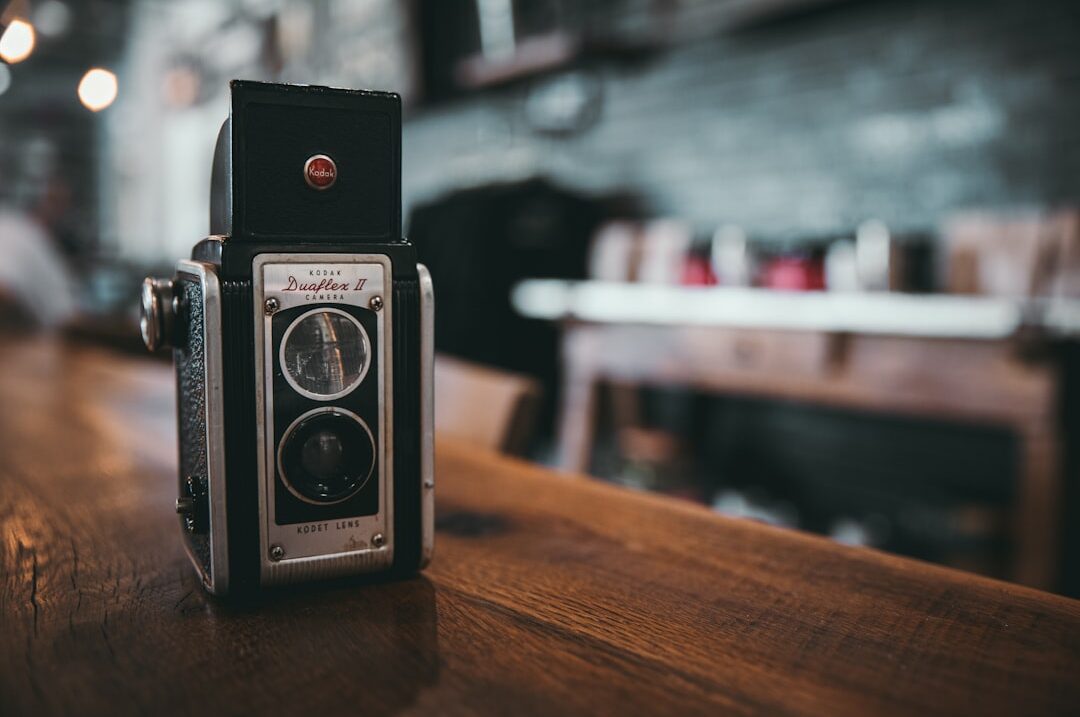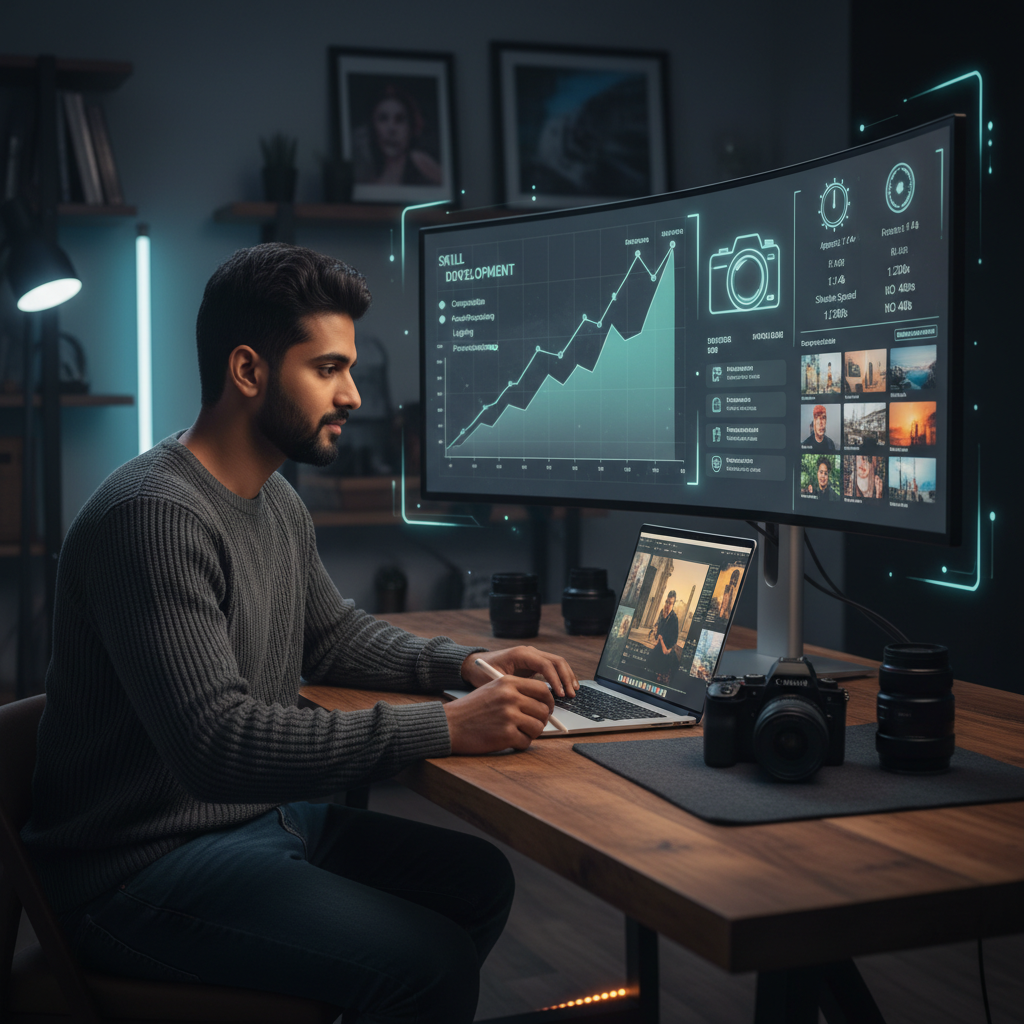Photographer Interview Questions 2025: Capture the Perfect Interview Moment (with AI Tips)


Ace Your Interview—Starting Now!
Practice unlimited photography interviews online. Get instant, actionable AI feedback with Huru—and land your dream job with confidence.
Start Practicing for Free
Framing Your Future: Why Photographer Interviews Demand More in 2025
The world of professional photography is transforming—fast. In 2025, AI-powered recruitment, remote portfolios, and video interviews are the new normal. Employers expect more: not just technical skill, but also creative vision, adaptability, and digital savvy.
Modern interviews for photographers test your ability to communicate your creative process, showcase real results, and embrace tech innovations like AI-assisted editing and virtual shoots. That means preparation is no longer optional—it’s essential.
Key Takeaway: You’re not just selling your photos—you’re selling your problem-solving mindset, tech fluency, and ability to thrive in a digital-first workplace. Huru.ai can help you master every aspect of this new interview landscape.

The Essential Lens: Must-Know Interview Questions (with AI & Creativity Focus)
Every great interview starts with great questions. Below are the most relevant, frequently asked, and future-focused questions you’ll face in a photographer job interview in 2025—with special attention to AI-driven workflows and creative adaptability.
- Walk me through your portfolio. Which image are you most proud of and why?
- How do you use AI tools in your workflow (editing, retouching, content curation)?
- Describe your photography style. How has it evolved with new technologies?
- How do you make clients feel comfortable during a shoot?
- What’s your process for handling difficult lighting or challenging locations?
- Tell us about a time you adapted your style to meet a client’s vision.
- How do you ensure your work reflects the latest visual trends—including AI-driven trends?
- How do you balance creative vision with client or brand requirements?
- Can you explain a situation where you leveraged AI to speed up post-processing?
- How do you stay updated with new camera technology and editing software?
💡 Key Takeaway
Interviewers want to see more than a portfolio—they want proof you can adapt, collaborate, and harness technology to deliver results.
Want to practice these questions in a real, interactive setting? Huru’s unlimited mock interviews let you rehearse, get instant AI feedback, and perfect your responses until you’re camera-ready.
Behind the Camera: What Recruiters Are REALLY Looking For
It’s not just about technical mastery! Here’s what the best employers (creative agencies, studios, brands) want to see from photographers in 2025:
- Storytelling Ability: Can you describe the story behind your favorite images?
- AI & Digital Fluency: Are you comfortable with AI tools for editing, selection, or client previews?
- Client Empathy: Can you make subjects feel at ease and translate their personality into photos?
- Adaptability: Have you thrived outside your comfort zone—remote shoots, new genres, or fast-paced environments?
- Feedback Mindset: How do you handle critique and iterate on your work?
- Professionalism: Are you punctual, reliable, and skilled in communicating vision and scope?
💡 Key Takeaway
Recruiters use AI and structured interviews to go deeper—so expect scenario questions and requests for real-world proof of your impact and adaptability.
For even more ways to stand out in digital interviews, check out How Ai Voice Modulation Can Enhance Interview Preparation And Confidence for advanced voice and presentation tips.
Camera-Ready: How to Practice & Shine in AI-Assisted Interviews
AI is more than a buzzword—it’s your secret weapon in preparation. Here’s how to prep for AI-driven interviews (and why tools like Huru.ai give you a real edge):
- Simulate Video Interviews: Practice in front of a camera or virtual interviewer to become comfortable on screen.
- Master Body Language: Use feedback from AI-driven platforms to refine your posture, eye contact, and confidence.
- Analyze Your Communication: Let platforms like Huru.ai analyze your tone, pacing, and answer structure for maximum impact.
- Get Instant, Actionable Feedback: Practice as many times as you want—Huru’s AI points out what works and what needs improvement.
💡 Key Takeaway
Real interview confidence comes from practice and data-driven feedback. Don’t just answer questions—refine your entire presentation.
For more on mastering interviews with AI, explore our blog on Handling Difficult Interactions Your Customer Service Interview Stories.
Q&A: Photographer Interview FAQs—Get the Edge in 2025
We’ve gathered the most common and critical questions candidates ask when preparing for photographer interviews in 2025. Plus, expert answers to help you stand out:
| ❓ Question | 💬 Sample Answer |
|---|---|
| How do AI tools influence your post-processing workflow? | “I use AI-powered software to automate repetitive edits (like color correction and skin retouching), which frees me to focus on creative decisions. This has improved both my efficiency and the final creative output.” |
| How do you ensure your style aligns with AI-driven content trends? | “I stay updated with industry blogs and experiment with AI-based trend analysis tools that suggest emerging aesthetics. I then adapt my portfolio to reflect relevant trends while maintaining my unique vision.” |
| Can you describe a time AI-assisted your photography outcomes? | “Recently, I used an AI-based culling tool to quickly select the best images from a shoot. This let me deliver a gallery to my client 50% faster, with higher overall quality.” |
| How do you make clients comfortable in front of the camera during video interviews? | “I always start by chatting about their goals and encouraging natural movement. In virtual shoots, I use video call features to coach them in real-time, ensuring a relaxed atmosphere.” |
| What’s your approach to remote/virtual shoots in 2025? | “I use high-quality cameras, stable lighting, and reliable streaming tools. I also walk clients through the process beforehand and use AI enhancements to optimize image quality instantly.” |
💡 Key Takeaway
Prepare for scenario-based and tech-focused questions. Stand out with specific stories of how you used AI or overcame remote challenges.
Still have questions? Practice your answers live—with feedback—using Huru’s mock interview simulator.
Level Up: Resources, Practice & Next Steps for Photography Candidates
Make your next move count. Here’s how to take your interview preparation to the next level:
- Sign up for unlimited interview practice and instant feedback on Huru.ai
- Update your portfolio for 2025—highlight projects where you used AI or tackled unique challenges
- Watch expert interviews and tutorials to learn from top photographers (see video below!)
- Network with other professionals in online communities and workshops
- Explore other interview guides: Top 10 Office Manager Interview Questions And Answers | Web Designer Interview Questions Build A Strong Impression Online
💡 Key Takeaway
Consistent practice, tech adoption, and learning from real experts are your secret weapons for 2025.
Watch: How to Ace Your Photographer Interview—Sample Questions, Answers & Presentation Tips
About the Author
Elias Oconnor is a senior content writer at Huru.ai. He crafts actionable, data-driven career guides that empower job seekers to unlock new opportunities and master their next interview.



 Jul 26,2024
Jul 26,2024  By Elias Oconnor
By Elias Oconnor